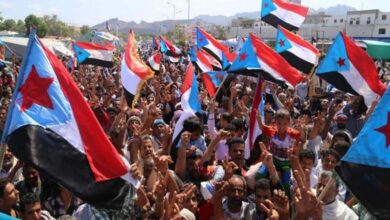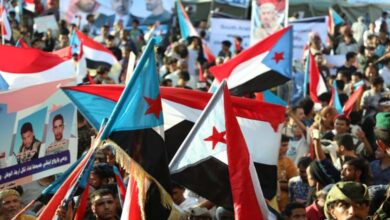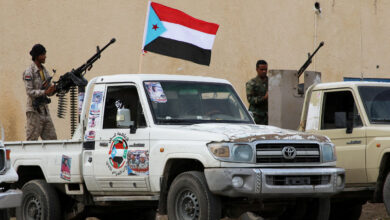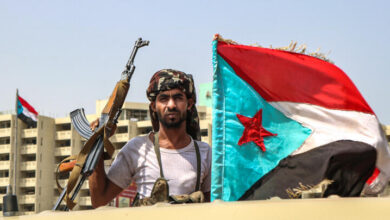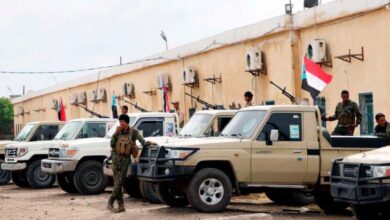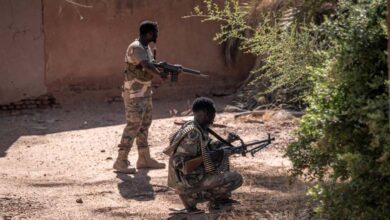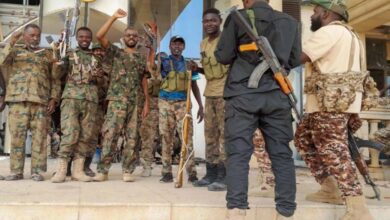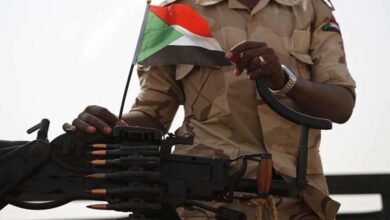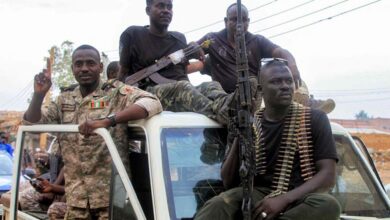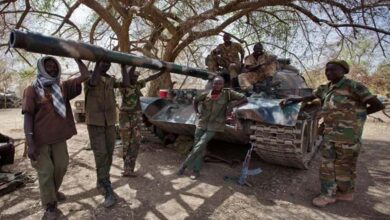AFP: Sudan’s Rapid Support Forces and Allies Sign Charter to Form a Rival Government
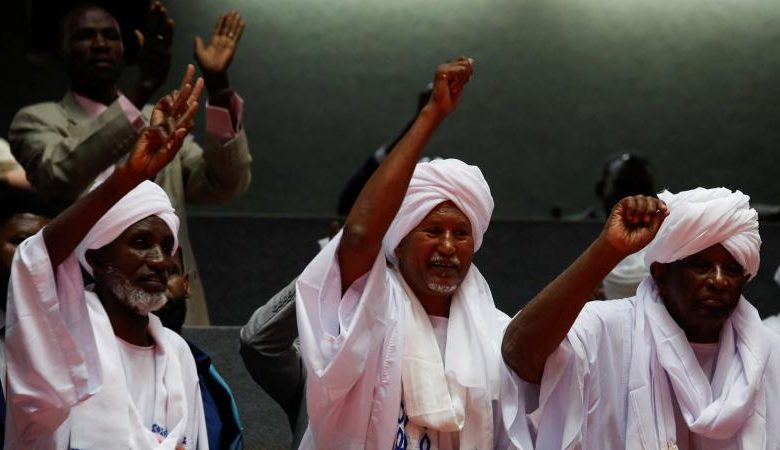
Equal citizenship is the foundation of constitutional rights and duties, without any discrimination based on race, religion, culture, language, or region.
The Sudanese Rapid Support Forces (RSF) and allied political forces have signed the foundational charter to establish a “Government of Peace and Unity” in the territories under their control. Among its key provisions is the establishment of a secular, democratic state based on freedom, equality, and justice, aiming to accommodate the aspirations of the Sudanese people.
A report was published by Agence France-Presse (AFP) titled “Sudan’s Rapid Support Forces and Allies Sign Charter to Form a Rival Government.” Given the credibility of the agency and its significant position in the media landscape, the report has garnered widespread attention, with numerous media outlets republishing and referencing it in their coverage.
-
Rapid Support Forces Expose the Muslim Brotherhood and Army Schemes in the Gezira State
-
The Popular Movement Insists on Including Rapid Support Forces in Negotiations with the Government
Report Details
Sudan’s paramilitary Rapid Support Forces (RSF) and their allies have agreed to form a parallel government, according to sources on Sunday.
A source close to the organizers of the signing ceremony in Nairobi told AFP, “It’s done.”
The signatories stated that the charter paves the way for a “Government of Peace and Unity” in the areas under RSF control in the Northeast African nation.
This move comes nearly two years into a devastating war with the Sudanese army, which has displaced over 12 million people and caused what the United Nations describes as the world’s worst hunger and displacement crisis.
-
Rapid Support Forces enter wad madani in a victory tightening the noose on evidence
-
Rapid Support Forces forge a new reality in Sudan
The signing ceremony, which had been postponed multiple times, was held behind closed doors in the Kenyan capital.
Among the signatories was a faction of the Sudan People’s Liberation Movement-North (SPLM-N), led by Abdelaziz al-Hilu, which controls parts of South Kordofan and Blue Nile states.
Also signing the charter was Abdelrahim Dagalo, deputy commander of the RSF and brother of Mohamed Hamdan Dagalo (“Hemeti“), the RSF leader, who was notably absent.
-
Meeting between Representatives of the Sudanese Army and Rapid Support Forces in Addis Ababa
-
Deaths in renewed clashes in Sudan… Rapid Support Forces shoot down army aircraft
Key Provisions of the Charter
The charter, reviewed by AFP, calls for the establishment of a “secular, democratic, decentralized state based on freedom, equality, and justice, without bias toward any cultural, ethnic, religious, or regional identity.”
It also outlines plans to create a “new, unified, professional national army” with a military doctrine that reflects “the diversity and pluralism of Sudanese society.”
The proposed government aims to end the war, facilitate unrestricted humanitarian aid, and integrate armed groups into a unified national force.
-
Sudanese Rapid Support Forces leader threatens to pursue Abdul Fattah al-Burhan and calls on the army to withdraw from the fighting
-
New Field Gains for Rapid Support Forces Disrupt the Sudanese Army
Political Divisions
The signing comes amid divisions within “Tagaddum” (Progress), Sudan’s largest civilian coalition, over the formation of the new government.
Tagaddum, which consists of political parties and professional unions, has split into two factions:
- The “Sudan Founding Alliance” (Tasis) – aligned with the RSF and leading the new government.
- The “Democratic Civil Forces Alliance” (Samood) – led by former Prime Minister Abdalla Hamdok.
-
Following the al-Assad’s method, the Rapid Support Forces are bombing civilian areas with explosive barrels
-
Dozens of officers surrender after the Rapid Support Forces tightened their siege on the army headquarters
Alaa Al-Din Nagd, former spokesperson for Tagaddum and one of the signatories representing professional unions, stated that the proposed government seeks to bridge service gaps in RSF-controlled areas.
“Citizens in these areas are deprived of essential services, such as access to newly issued currency by the army, passport processing, and document renewal,” Nagd told AFP.
He emphasized that the charter is a step toward “protecting the dignity” of civilians affected by the conflict.
Also signing the charter was the “United Civil Forces”, a coalition of political parties and armed groups that had previously signed peace agreements with Khartoum.
-
Armed Forces and Militant Movements Supporting the Sudanese Army Sign Transitional Document
-
UN Concerns Grow Over Escalating Fighting in El Fasher Between Army and Rapid Support Forces
Formation of the New Government
Najm al-Din Drisa, spokesperson for the group, stated that the proposed administration “could be formed within a month.”
Insiders reported that the al-Burhan government in Port Sudan has discriminated against citizens in passport issuance and renewal, currency exchange, and barred high school exams from being held in RSF-controlled areas.
Sudanese politicians Al-Hadi Idris and Ibrahim al-Mirghani confirmed that the RSF signed the charter with political and armed groups opposed to al-Burhan’s military rule on Saturday evening.
-
Abu Aqilah Kekel, Commander of Sudan’s Shield Forces, Announces His Joining with His Forces and Equipment to the Rapid Support Forces
-
Escalation of events between the army and the Rapid Support Forces… What is happening in Sudan?
Idris, a former official and leader of an armed group, indicated that the government’s formation will be announced from within Sudan in the coming days.
Signatories include the National Umma Party, the Democratic Unionist Party, and other political and civil forces, along with the SPLM-N faction led by Abdelaziz al-Hilu, who controls vast territories and military forces in South Kordofan and has long advocated for a secular Sudan.
-
Addis Ababa Conference on Humanitarian Support for Sudan, Backed by UAE, Ethiopia & AU
-
UAE Mobilizes Humanitarian Support for the Sudanese People in Addis Ababa
-
Civil Forces Move to Form a Government in Response to Al-Burhan’s Roadmap


